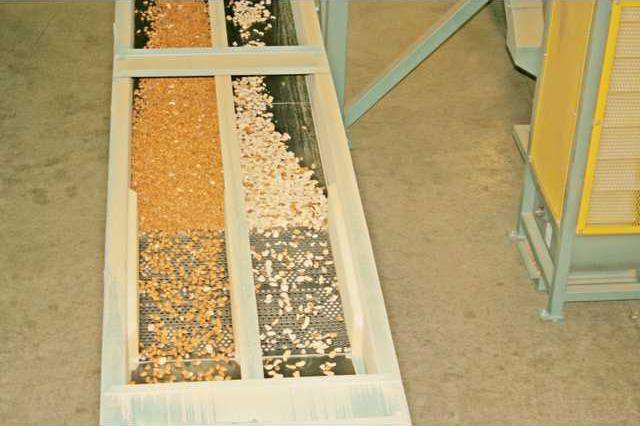One of Turlock's top commodities is facing new regulations in its manufacturing, pasteurization, and processing to ensure safety for global consumers.
After the 2004 salmonella outbreak that traced back to the world's largest almond producers in the Central Valley, the Almond Board of California proposed regulations to pasteurize all almonds sold to the public.
The California crop report has shown that almond sales have picked up significantly since the 2004 proposal. In 2011, for the first time ever, the value of the almond crop surpassed California's grape industry, and has moved to second place behind dairy.
Although there was a decline of almonds produced in California for 2012, the crop value continued to rise and is in strong demand for 2013 alongside pistachios. As of March 29, the USDA has noted that almonds generate more than half of the U.S. nut-crop value.
New irrigation practices have had a profound effect on almond crops, but now changes are needed in the packing, processing and pasteurization behind production for quality control.
The USDA and safety experts have been recommending best practices for agricultural and manufacturing processing plants. The U.S. Food and Drug Administration is also addressing a new rule that will consider almonds "produce," which will impact regulations for current almond handlers in packing and shipping almonds directed for human consumption.
There will be a written food safety plan in the near future that will outline records to demonstrate newly improved manufacturing practices.
Local organizations, such as the Monte Vista Farming Company, have been working with the Western Agricultural Processors Association and other services to try and figure out the next course of actions to be taken in compliance with the new standards proposed by the Food Safety Act.
Monte Vista Farming Chief Operating Officer Jonathan Hoff believes that any effort to prevent disease is important, and handlers must be willing to step up to the task.
"For the most part of our industry, our customers and the consumers have been the driving force towards the Food Safety Act," said Hoff. "We are aiming towards high quality production, and we have been at the forefront of federal regulations compared to other distributors."
The FDA will now consider large-scale farming operations as food processing facilities, putting greater emphasis on manufacturing practices and programs to ensure further sanitation.
"We are not sure how everything will change at this point," said Hoff about the pending regulations. "I don't even believe the FDA is certain of the rules they will impose on us, but we are trying to be accommodating. I think it is important for producers and processors of California almonds to be as progressive as any other industry, and most of that progression is through customer demands."
Smaller processors who have not been in favor of the safety act will have a difficult time catching up if increased inspections are expected, Hoff remarked.
As of now, the FDA is still reconfiguring what is defined as a small business or low-risk facility, and is currently seeking comments from small businesses that are considering exemptions if their annual sales are less than $1 million, $500,000, or $250,000.
Small businesses ran by farmers with an average three year value of $25,000 or less will not have to conform to the new standards set by the FDA.
Almond handlers will need to update their current food safety program and practices, which can be found through the ABC Food Quality and Safety Program manual. The USDA and Almond Board of California do not see any dire implications that will affect the almond industry.
Almond industry readies for Food Safety Act changes





